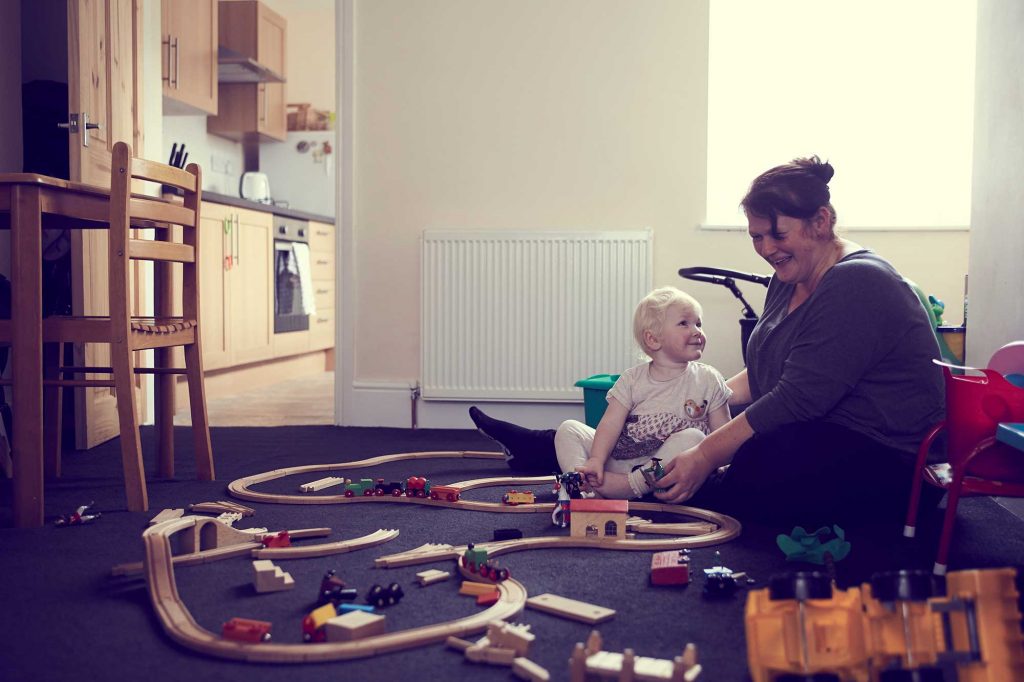
“Under current legislation, dark, cramped, isolated housing which hinders children’s development and contributes to poor mental health is legal and complies with housing standards.”
Jonathan Lewis, Programme Manager for the Nationwide Foundation’s Nurturing Ideas to Change the Housing System Programme
Whatever else may be happening in politics, this week marks a step forward in ensuring that all new homes of the future are decent as the Healthy Homes Bill receives its second reading in the House of Lords.
Championed by Lord Nigel Crisp and the Town & Country Planning Association, the Healthy Homes Bill will transform standards for newly built housing.
A decent home is essential to a decent life. But many people around the UK live in homes that cause harm to their health and wellbeing, and unhealthy homes are still being built today.
There is particular concern about office buildings and storage facilities being converted into homes under the permitted development rights introduced in 2013. Often, people living in these conversions have little and sometimes even no natural light; tiny rooms; and no access to playgrounds, green space or community facilities, because their homes are on former business sites and industrial estates with no walkable access.
The TCPA report ‘No Place for Place-making’ describes children in these developments growing up surrounded by industrial pollution. With no play space indoors and no parks nearby, they are having to play on roads where delivery lorries manoeuvre.
In 2020, the National Housing Federation found that 31% of adults in Britain had mental or physical health problems caused by the lack of space or conditions in their home. This is a systemic problem: England has some of the smallest homes in Europe and under current legislation, dark, cramped, isolated housing which hinders children’s development and contributes to poor mental health is legal and complies with housing standards.
These are the slums of the future and the creation of such housing must end. Stopping it is possible if we introduce the right legislation that will change the standards for building new homes.
Under current legislation, a home is considered ‘decent’ if it meets minimum standards, is in reasonable repair, has reasonably modern facilities and services, and is reasonably warm. This is not enough. In fact, it’s far from enough.
The Healthy Homes Bill sets out 11 high-level principles which, together, define a decent home. If it reaches the House of Commons and is passed in law, all new homes would have to:
- Be safe in relation to the risk of fire
- Have adequate space
- Have access to natural light
- Meet people’s lifetime needs and be adaptable, including storage space
- Be accessible for people with disabilities
- Prioritise walkable services and sustainable transport
- Be built in line with the Climate Change Act 2008
- Have access to green space and play areas that are accessible to all
- Be resilient to a changing climate
- Be secure and meet design standards which reduce and prevent crime
- Meet standards to eradicate noise pollution
A home that provides space, peace and light, where people can imagine themselves staying through different stages of their lives, can support mental health. Living somewhere that is in easy distance of amenities, play areas and nature can give people better chances in life. And homes which are resilient to climate change, which have low fire risk and which discourage crime, help to protect the health and wellbeing of those who live in them.
This important bill is gathering lots of support. It is backed by 34 organisations, charities, councils and businesses, including Age UK, the Chartered Institute of Environmental Health, energy company E.on, the National Housing Federation and the Nationwide Foundation, alongside a growing number of peers and MPs.
The bill’s second reading, on 15th July, is the first opportunity for members of the House of Lords to debate it, ask questions and add their support if they see fit. There’s a long way to go yet, but the Healthy Homes campaign is gathering momentum and public support will become more and more key as the bill makes its way through the legislative process.
Sign up to the TCPA’s Healthy Homes newsletter now to join us on the journey, receive updates on progress and find out how you can get involved.

